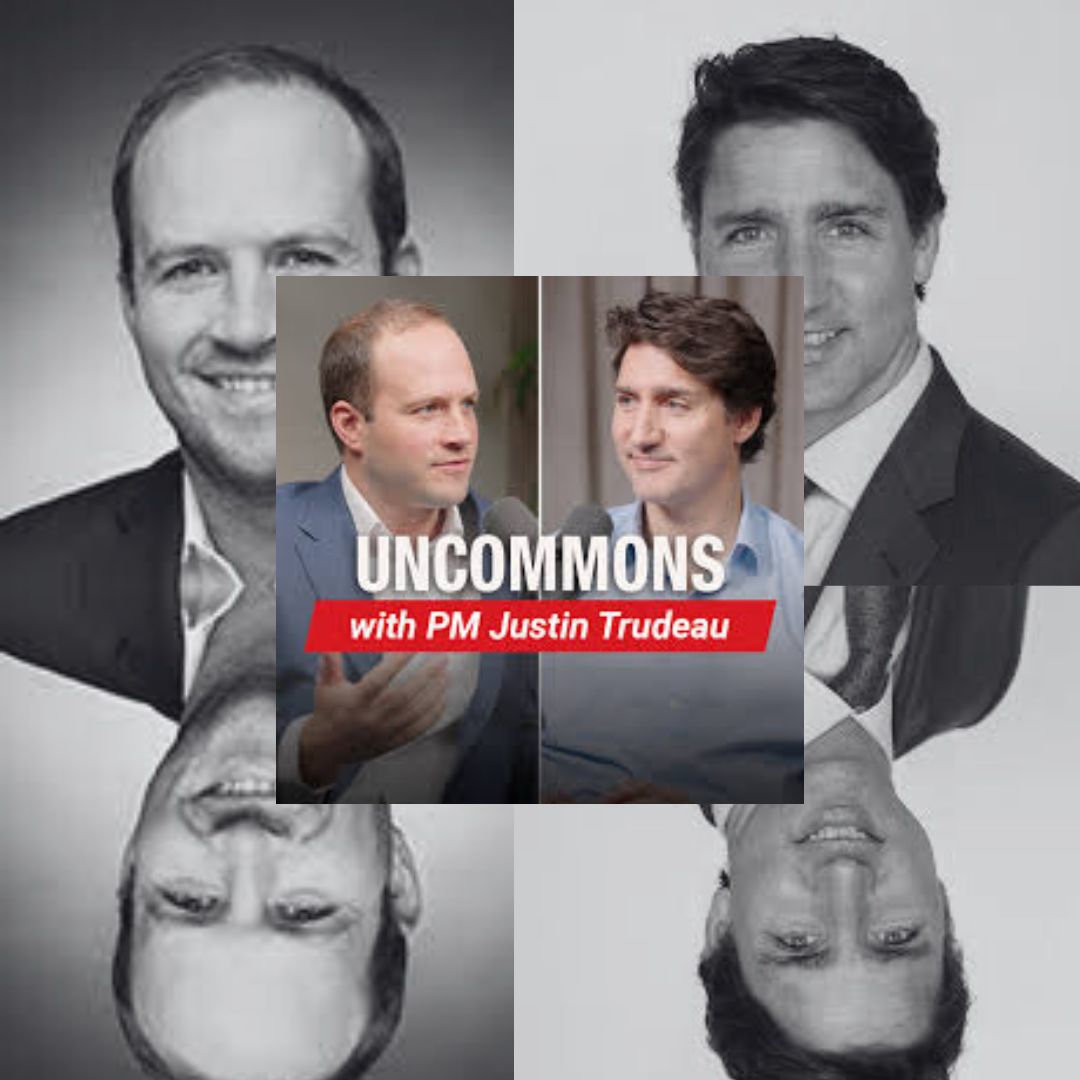On Oct. 1, Prime Minister Justin Trudeau appeared on MP Nate Erskine-Smith’s podcast Uncommons to discuss a plethora of subjects from his failures and successes in office to the priorities he is bringing into the next election.
Erskine-Smith prefaced the conversation by noting for transparency that there were no pre-approved questions by Trudeau.
They began by reflecting on Trudeau’s time in office and the concerns Canadian citizens and other members of the Liberal Party have about him as the leader of the country. Erskine-Smith questioned Trudeau on why he wants to represent the Liberal Party again, after nine years, amidst all the concerns about his leadership.
Trudeau reflected on his dissatisfaction with the Harper government and his drive to be the candidate to give Canadians a “choice,” saying he feels this choice is just as important in the upcoming election.
He expressed the difficulty he anticipates for the upcoming election and said that if he were “ten points ahead in the polls right now,” Trudeau’s constituents and Canadian citizens would not be criticizing his priorities so harshly.
They continued their conversation by discussing Trudeau’s Progressive Conservative opponent Pierre Poilievre and the differences between their leadership methods and priorities.
Trudeau began by saying that everyone knows what Poilievre is “fighting against” but he has never shared what he is “fighting for,” which Trudeau noted has been the case for Poilievre’s 20 years in the house.
Erskine-Smith turned the discussion towards the matters Trudeau is fighting for and what his leadership will bring to Canadians if he wins the upcoming election.
Erskine-Smith elaborated that, in his opinion, Trudeau and the Liberal Party’s greatest strength is their efforts to make lives easier, more affordable and safer for families, referring to the Canada Child Benefit, their efforts to protect children online and their promises for healthy school food, among others.
Trudeau agreed, noting that these things would likely be at risk if the Progressive Conservatives won the election, as Poilievre voted against the Canada Child Benefit.
Trudeau went on to say that it is crucial that Canadians not only consider what he plans to do if he remains in office, but also what he has done for Canada over the past nine years.
He also emphasized that he refuses to “pick a fight” with Poilievre because his top priority is “fighting for Canadians.”
Erskine-Smith brought up the Liberals’ recent major byelection loss, where the Conservative Party was able to acquire the long-held Liberal seat in Toronto—St. Paul’s. He questioned Trudeau for not putting out any sort of “paid ad” against Poilievre, as he let the Conservative Party criticize the Liberals without any critique in return.
Trudeau agreed, saying in retrospect he wished he would have done something.
Regarding Trudeau’s successes in office, Erskine-Smith pointed to the social programs Trudeau helped establish, namely the “Canada Child Benefit, childcare, dental care” and the upcoming pharmacare plan that the government is working on.
Trudeau agreed with categorizing these efforts as successes, saying that he often thinks back to his father, Pierre Trudeau, and how some things he accomplished in office still impact Canadians today. Trudeau elaborated that he usually thinks about his successes in the long term, wanting them to leave a positive impact on future generations.
After discussing Trudeau’s various successes in office, Erskine-Smith asked Trudeau what he would have done differently from his time in office.
Trudeau answered with certainty, saying “electoral reform” was something he regrets not doing differently.
He said that “the winner takes all version of first past the post” that is currently in use devalues votes and is troubling alongside the increased polarization and “excesses of populism” that have infiltrated political spaces.
“I certainly would have done things differently around electoral reform to try and make sure that we are not going to be fighting this next election under first past the post again,” said Trudeau.
Moving the discussion towards Trudeau’s relationships in politics, Erskine-Smith brought up the New Democratic Party’s (NDP) leader Jagmeet Singh, and his recent withdrawal from supporting the Liberals and termination of the Supply and Confidence Agreement (SACA).
Trudeau called Singh’s concerns over the Liberals’ lack of strides in office relating specifically to the NDP’s priorities in SACA a “cynical ploy that undermines any faith that progressives have in what we elected this progressive government.”
To end the conversation, Erskine-Smith asked Trudeau what he might say to motivate supporters of the Liberal Party and Canadians overall.
Trudeau responded that the Liberals “are a team that needs to stay in power,” elaborating that they get elected on “things that go to the heart of the Charter, because that’s what a Liberal is.”
Trudeau said he also aims to motivate those who have been “sitting on the sidelines,” saying that he does not only want to warn against the negatives he sees in the future if Poilievre and the Conservatives take over leadership, but he also wants to share a vision of a better Canada.
“The things we’ve been fighting for for eight years: environment and economy, inclusion, progressive values, defense of individual rights, respect for everyone,” said Trudeau, “all those things that we’ve been fighting for are not just still important, they’re more important in this upcoming election than they ever have been.”
Trudeau ended on a hopeful note and urged Canadians to reflect on the conversation he shared with Erskine-Smith.
The full podcast episode with the accompanying video can be found on the Uncommons website.

